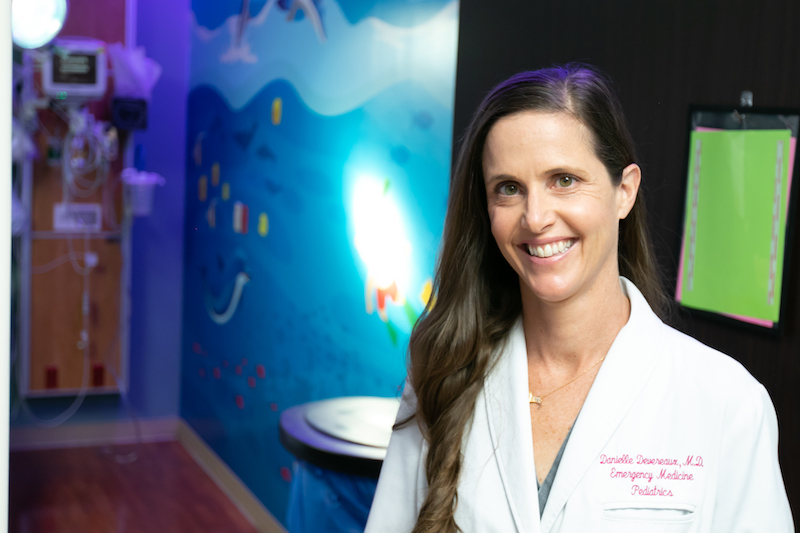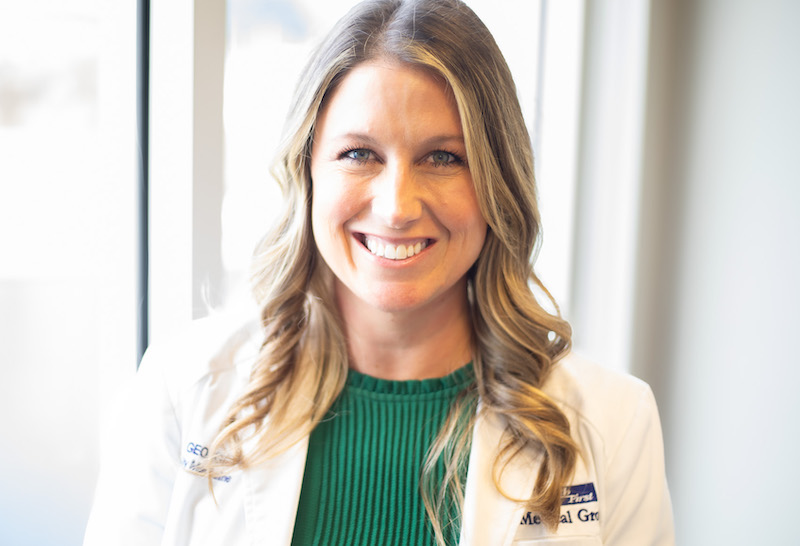Rates of RSV and flu rising in the Sunshine State

Is it flu, RSV or COVID-19? Rates of RSV and flu are rising in the Sunshine State. Here’s what to know and do about it.
BREVARD COUNTY, FLORIDA – A survey published at the end of 2019 found that 90% of Americans have gone to work sick. How often do they do it? “Always,” said 1 in 3.
This is the season for respiratory syncytial virus (RSV), flu and COVID-19. Rates of RSV are straining some hospitals in the South, while flu rates are surging in Florida – with children and child care facilities particularly taking a hard hit.
In 2019 a sore throat and body aches could be sloughed off as a seasonal cold, but today there’s greater concern – and easy access to care locally.
Is it flu, COVID-19 or RSV?
Respiratory illnesses are common during the fall and winter in the Northern Hemisphere. The great majority of people, even very young children, will recover within a normal timeframe and without harm.
For adults and kids alike, whether it is COVID-19, RSV or the flu – or one of the many other viruses, such as adenovirus or rhinovirus – “doesn’t matter that much,” says Dr. Danielle Devereaux, Director of Health First’s Holmes Regional Medical Center’s Pediatric Emergency Department, “except when there is an underlying medical condition such as prematurity, congenital heart disease, chronic lung disease, sickle cell, or any condition that compromises the immune system.” Then, treating that particular viral infection can become critical.
Holmes Regional’s Pediatric Emergency Department is the only one on the Space Coast, “and I want parents to know that we’re here for them. Do what you know how to do, and if for any reason it’s not working – a visit to the ER is warranted.”
The flu, COVID-19 and RSV are all common, contagious viruses. The symptoms can be similar, and sometimes infections can lead to even greater ailments (pneumonia).
RSV is common and typically mild. The symptoms are usually confined to the respiratory system. RSV in the elderly and infants can cause breathing impairment that can become fatal. Symptoms are managed with fever reducers, and most infections recede within a week, though coughing can linger for several weeks.
COVID-19 has led to about 6.5 million hospitalizations since the onset of the novel coronavirus in the U.S. in 2020. The disease course has become generally milder, though thousands are hospitalized each week for severe cases. Symptoms include headache, cough, sore throat, body aches and more.
Flu “is almost diabolical,” says Barry Inman, formerly an epidemiologist for the State of Florida in Brevard County, currently a Health First infection control expert. “You know when it’s the flu because it hits you like a freight train.” Symptoms range from body aches to fever to vomiting and most everything in between.
Flu is an RNA virus, like hepatitis or COVID-19, that kills as many as 50,000 in the U.S. or more in a typical year. Many flu symptoms can be confused for COVID-19.

What Everyone Can (and Should!) Do
For most of us, a bout of RSV, COVID-19 or flu will mean a few days of varying degrees of sickness, even fever, followed by a steady recovery. The most important thing you can do after rest, hydration and fever reducing medication is limiting others’ exposure to you.
■ Stay home
■ Wear a mask around others until your symptoms subside (A surgical mask if not an N95 one, says Inman.)
■ Wash your hands often – don’t share cups or food
■ Ventilate your spaces as best as possible
Get Vaccinated
Each year, the prevailing flu vaccines are tailored to combat circulating strains, and today, that’s true of COVID-19 vaccines as well. The strongest defense against severe symptoms is a vaccine, and the Centers for Disease Control and Prevention recommended the latest COVID-19 vaccine for everyone ages 6 months and older.
This year, the FDA also approved the first RSV vaccine for adults over the age of 60. There are also approved RSV vaccines for infants and expecting mothers between week 32 and week 36 of pregnancy.
The CDC recommends a flu shot before the end of October, but it’s never too late!

When Children’s Fever Spikes
Dr. Devereaux and Health First Pediatrician Sheila McLeod said children, and especially infants, who show symptoms of any viral infection should be monitored closely, including treating with children’s or infant Motrin or Tylenol, but that parents should not make the decision to head to a hospital or urgent care based on body temperature alone.
“When we treat fever, we aren’t concerned about the height of the temperature as much as how the child looks and acts,” said Dr. McLeod. “How are they acting? Are they lethargic, or worse, limp? Are they looking at you? Will they walk? Are they drinking and urinating?”
“The vast majority of children who have viral illnesses recover uneventfully, without complications. The thing I say to parents the most is, you know your child. I’ll say, ‘I know medicine, but you know your child. If you’re genuinely worried, get them seen.’”

When To Call the Doctor
Thankfully, calling a doctor is easier nowadays than picking up the phone with new technology such as Virtual Visits, where you can choose to do a quick eVisit questionnaire or speak to a Provider through a secure video chat.
“If you have symptoms that are more severe than what feels like the common cold, you should call your Provider,” says Health First Medical Group’s Jayde George, DO, who maintains a Family Medicine practice offering both in-office and Virtual Visits.
For patients 6 and up, Same Day Virtual Visits offers access to a Provider from the comfort of the couch Monday through Saturday. From strep throat to sports injuries, Providers can diagnose and begin the first steps of care.
“You would be surprised at how much we can evaluate through our Virtual Visits,” says Dr. George. “Why make the trek to the office when you are feeling under the weather, when we can evaluate you while you rest at home?”
“If we are doing a virtual appointment and I feel like you should have a flu, COVID-19 or RSV swab (test), or a chest X-ray, I can say, ‘I want you to run to the lab for your swab, get your chest X-rayed while you are there, and meet me at the office at 2 p.m. Simple!”
To explore our virtual care options, visit HF.org/virtual.
When To Go to the Emergency Department
Go the emergency department if you have chest pain or pressure, confusion, difficulty breathing or blue discoloration to your lips or face.
Visit HF.org/news to keep up with the latest at Health First.
The post HEALTH FIRST PHYSICIANS: Is it Flu, Respiratory Syncytial Virus or COVID-19? appeared first on Space Coast Daily.
